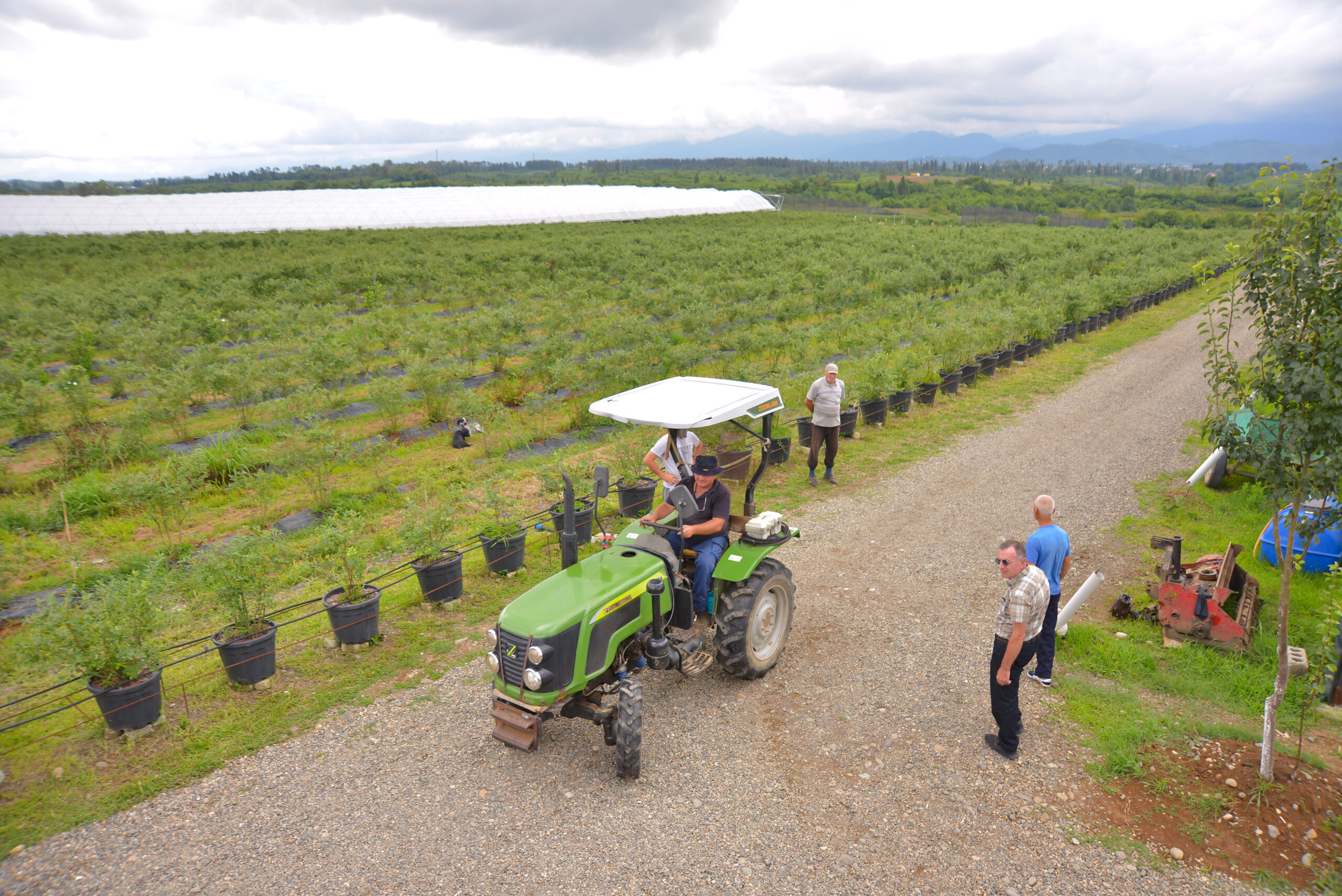USAID Agriculture Program
Georgia
Overview
The five-year, $26.8 million USAID Agriculture Program (2018-2024) worked to accelerate the growth of agricultural sub-sectors that show strong potential to create jobs, improve incomes, and increase micro, small, and medium enterprise (MSME) revenues, with particular focus on the berry, culinary herb, stone fruit, perishable vegetable, pome fruit, table grape, mandarin, and nut crop value chains.
Impact
- 70 million increase in sales by assisted enterprises
- 3,680 new jobs created by program beneficiaries
- 170,000 Program partners trained in technical or business capacities
- $9.04 million leveraged in cost-share from Program partners

To accomplish this, the Program facilitated partnerships with public and private sector actors and provided demand-driven technical assistance to farmers, agribusinesses, and MSMEs to address value chain gaps and advance agricultural production and processing.
The Program also contained an integrated grant component to deliver cost-share grants to producers, processors, cooperatives, service/information/extension providers, and associations. These grants were designed to address identified value chain gaps and develop agricultural sub-sectors, contributing to the sustainable development of the Georgian economy.
Approach
- Increase Productivity and Productive Capacity: The USAID Agriculture Program used technical assistance to develop and update business plans, financial plans, and market assessments and provides competitive cost-share grants for MSMEs, including producers, processors, service providers, cooperatives, and associations.
- Build Capacity To Add Value: The Program improved processing, storage, and other techniques by providing training to farmers on production, harvesting, and post-harvest techniques and facilitated relationships between value-adding agribusinesses and smallholder or emerging commercial farmers.
- Meet International Standards and Certifications: The Program provided cost-share grants for MSMEs, facilitating market access to new domestic buyers and international markets and training producers and MSMEs on modern production and business operations.
- Strengthen Linkages Within Agricultural Value Chains and to New Markets: The Program encouraged public-private partnerships by facilitating linkages and providing support to vocational education institutions, business service providers, and enterprises to improve training curricula and access to private sector-led skills development opportunities. It also assisted with developing business relationships and addressing financial institutions’ requirements to obtain capital for further growth.
- Strengthen Capacity of Cooperatives, Extension, and Other Service Providers and Associations: The Program facilitated the development and capacity building of business or sector associations, trained service and information providers on topics such as teaching methods, farmer outreach models, and technical skills and knowledge, and supported dialog between extension providers, educational institutions, and cooperatives to coordinate efforts to increase reach and effectiveness of extension.
Partners
To implement the USAID Agriculture Program, Cultivating New Frontiers in Agriculture (CNFA) collaborated with a diverse group of both international and local partner organizations, including South-East Europe Development (SEEDEV) and the World Food Logistics Organization (WFLO).
Related Expertise
Georgian Commodity Catalog
The USAID Agriculture Program, in partnership with the Georgian Agri-Export Group, developed a catalog showcasing Georgia’s leading producers and exporters in 10 key commodity chains with high export potential, such as wine, nuts, tea, and cheese.




